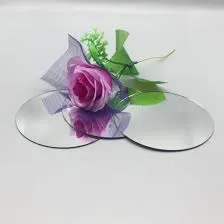

Understanding 8mm Float Glass A Comprehensive Overview
Float glass, a common term in the glass manufacturing industry, is a type of glass that is produced through the float glass process. This method ensures a flat and smooth surface, making float glass one of the most popular choices for various applications, including windows, storefronts, and decorative features. Among various thicknesses available, 8mm float glass represents a robust option that balances strength and aesthetic appeal.
The float glass manufacturing process involves melting raw materials, including silica sand, soda ash, and limestone, at high temperatures. The liquid glass is then poured onto a bed of molten tin, where it spreads out uniformly, forming a flat sheet. This method not only results in excellent optical clarity but also guarantees consistent thickness and smooth surfaces, eliminating distortions that are often seen in other glass types.
8mm float glass particularly stands out due to its strength and durability
. With a thickness of 8 millimeters, it offers enhanced resistance to impact compared to thinner options, making it suitable for various applications where safety and durability are paramount. For instance, it is frequently utilized in commercial and residential buildings for large windows and glass doors, providing security while allowing ample natural light to enter spaces.
Another important characteristic of 8mm float glass is its versatility. It can be easily cut, polished, and processed to fit specific requirements. This adaptability makes it ideal for numerous applications, including glass partitions, shower enclosures, and facades. Additionally, it can be treated or coated to improve thermal insulation and energy efficiency, meeting modern standards for sustainability and comfort.
The aesthetic appeal of 8mm float glass should not be overlooked. Its clear and unobtrusive appearance makes it an attractive choice for designers and architects. When used in storefronts or interior spaces, it can create a sense of openness and transparency, enhancing the overall look and feel of an environment. Furthermore, it can be combined with other treatments, such as tinting or frosting, to achieve desired visual effects while maintaining functionality.
From an environmental perspective, float glass is considered a sustainable material. It is fully recyclable, and the glass manufacturing industry is increasingly adopting environmentally friendly practices. Many manufacturers seek to minimize waste and reduce carbon footprints, aligning with global initiatives toward sustainability.
In conclusion, 8mm float glass is an excellent choice for various applications due to its strength, versatility, and aesthetic appeal. Whether used in residential or commercial environments, its ability to provide security and elegance while allowing natural light to penetrate makes it invaluable in modern architecture. With ongoing advancements in manufacturing processes and sustainability efforts, 8mm float glass will surely continue to be a preferred material in the glass industry for years to come.